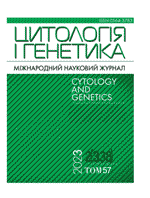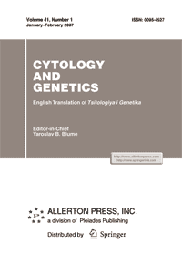SUMMARY. D. antarctica E. Desv. plants cultivated in vitro were analyzed for the chromosome number, leaf length, and efficiency of callus formation. Most of the studied genotypes had the typical diploid chromosome number. However, a hypotriploid and a plant with additional B-chromosomes demonstrated mixoploidy caused by the presence of a significant proportion (up to 15–25 %) of aneuploid cells. ISSR- and IRAP-PCR showed that Jaccard genetic distances between the plants were varied within the range of 0,1803–0,0323. Furthermore, the differences between the specimens with atypical karyotype and diploids did not exceed the differences within the group of diploid plants. Variation in the leaf length and growth parameters of the plants was characterized. Plants with different chromosome numbers differed in the leaf length and efficiency of callus formation. Obtained results may indicate relationships between the chromosome number, studied morphometric parameters and efficiency of callus induction in the analyzed D. antarctica plants. Molecular genetic differences between the plants with different chromosome number determined on the basis of the studied PCR-markers were comparable to diploid accessions.
Keywords: Deschampsia antarctica E. Desv., leaf length, efficiency of callus induction, number of chromosome, ISSR-PCR, IRAP-PCR

